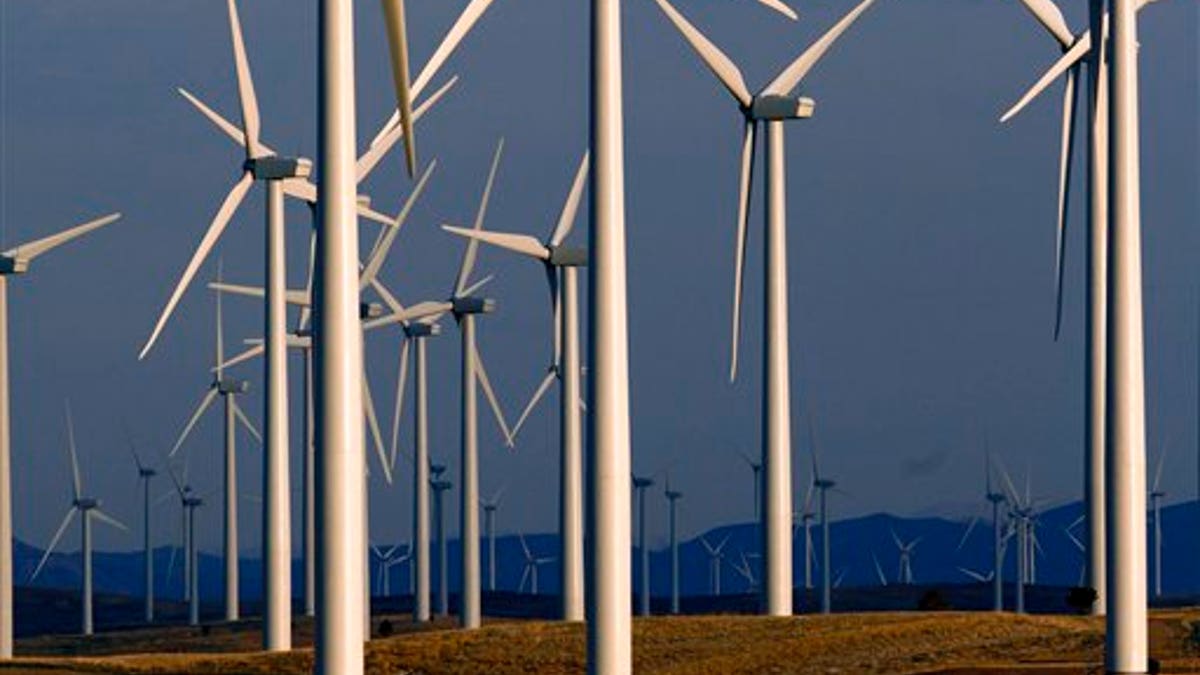Media top headlines February 21
In media news today, PolitiFact gets ripped for a fact-check comparing the Super Bowl to schools in masking debate, The Atlantic argues mask mandates 'don't need to make sense,' and Brian Stelter addresses past communications between Allison Gollust and Governor Cuomo.
The Washington Post was blasted by critics over the weekend for claiming that completely switching to renewable energy, such as wind and solar power, from fossil fuels could avoid future electricity blackouts.
In a Sunday piece noting one year since the massive deep freeze that gripped parts of Texas leading to a five-day blackout, The Post cited a recent study by Stanford University that argued switching to renewable alternative energy sources and completely dropping the use of fossil fuels, would lead to a significantly reduced energy demand and avoid events like the Texas blackout.
‘TUCKER CARLSON ORIGINALS’ UNCOVERS HOW WIND ENERGY IS DESTROYING LANDSCAPE, LIVELIHOODS
In the study, researchers at Stanford found that switching to 100 percent renewables, such as wind, solar and water energy sources, would "lower energy requirements, reduce consumer costs, create millions of new jobs and improve people’s health."

A wind farm in Glenrock, Wyoming. (AP)
Using simulations that assumed use of electric or hydrogen fuel cell vehicles and fossil fuel sources of energy being completely replaced, the study found that "total end-use energy demand decreased by around 57 percent," and "per capita household annual energy costs were around 63 percent less than a 'business as usual' scenario."
The study also claimed that completely switching to renewable energy sources would create "5 million long-term, full-time jobs," however didn't specify how many jobs would be lost from completely scrapping the fossil fuel industry.

People seeking shelter from below freezing temperatures rest inside a church warming center Tuesday, Feb. 16, 2021, in Houston. (AP Photo/David J. Phillip) (AP)
Critics took to social media to blast The Post, as well as the study, with some suggesting it was delusional and "completely stupid," while others questioned why nuclear power wasn't brought into the conversation. The Post did mention that nuclear energy sources shut down during the Texas freeze, along with coal and gas sources.
GREEN ENERGY FIRMS THE BIGGEST CORPORATE WELFARE RECIPIENTS EVER
"Every [sic] drive by one of those windmill farms and count how many are working?" asked one critic, while another suggested the study was "a straight-up lie."
Another critic simply suggested Texas, a heavy oil producing state, would reject attempts to switch to renewable energy sources.

Owner Jim McIngvale collects trash inside his Gallery Furniture store which opened as a shelter Wednesday, Feb. 17, 2021, in Houston. (AP Photo/David J. Phillip)










































